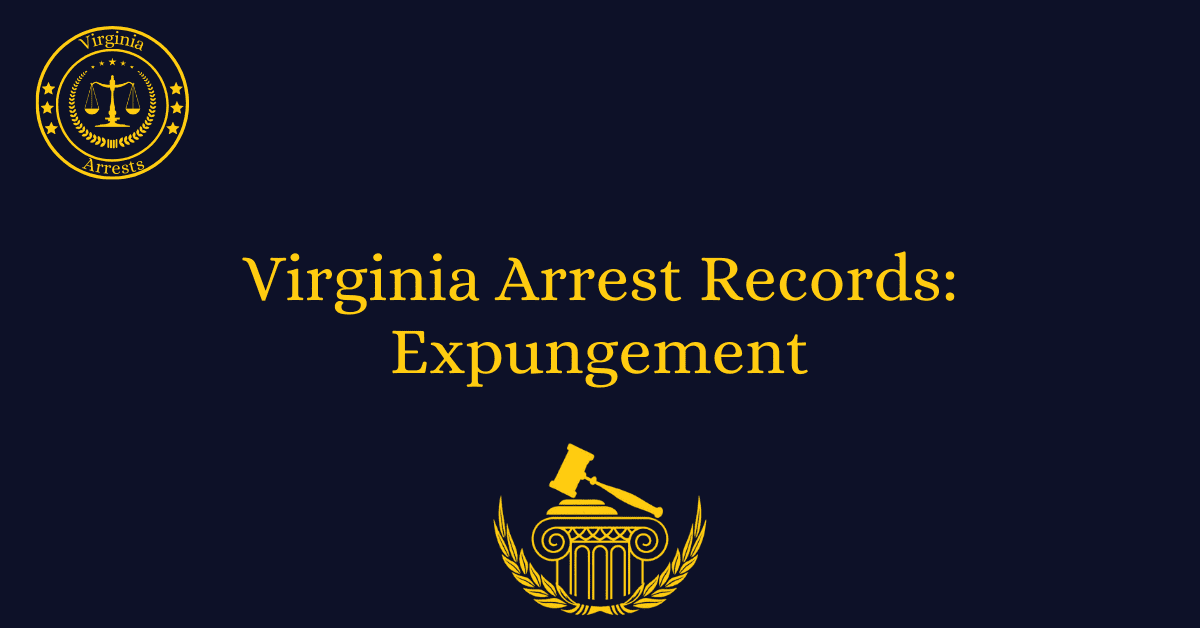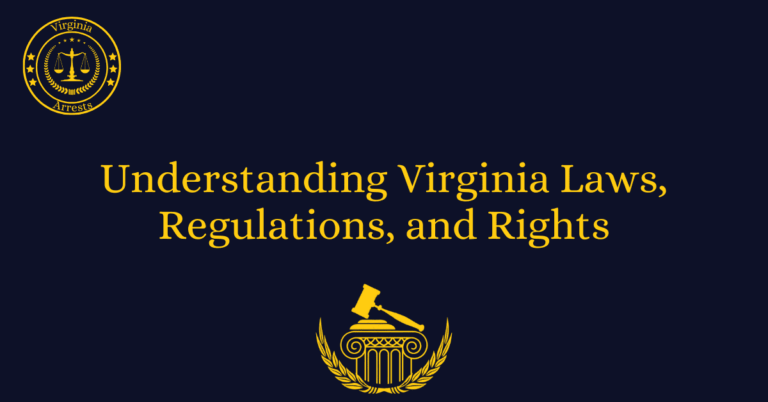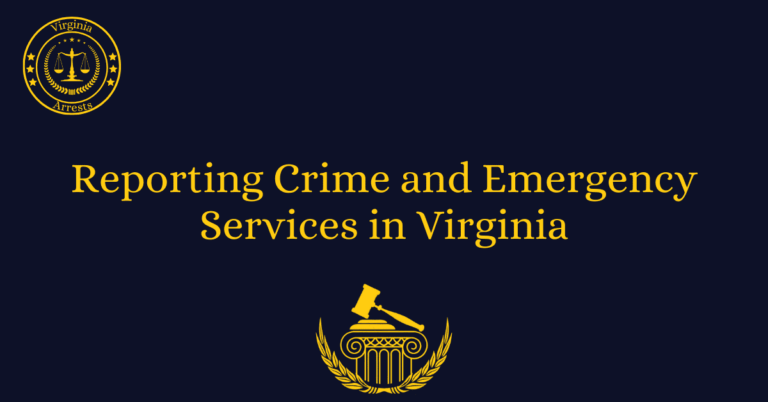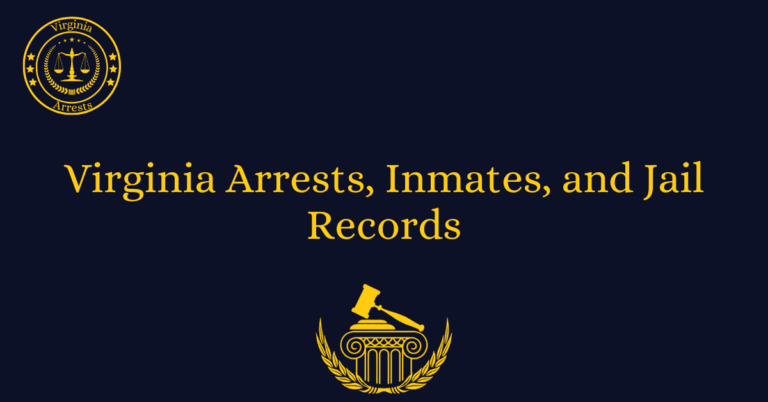Virginia Arrest Records: Expungement
Arrest records can have a lasting impact on an individual’s life, affecting employment opportunities, housing options, and personal relationships. In Virginia, individuals with arrest records may seek expungement, a legal process that allows for the removal of certain arrest records from public view. This article will delve into the intricacies of expungement in Virginia, including eligibility requirements, the application process, and the potential benefits of expunging arrest records.
What is Expungement?
Expungement is the legal process of sealing or destroying criminal records, including arrest records, effectively removing them from public access. In Virginia, expungement laws dictate which records are eligible for expungement and the process by which individuals can petition the court for expungement.
Eligibility for Expungement
In Virginia, eligibility for expungement depends on various factors, including the outcome of the arrest, the type of offense, and the individual’s criminal history. Generally, individuals may be eligible for expungement if:
- The charges were dismissed or nolle prossed: If charges against an individual were dismissed by the court or nolle prossced (dropped by the prosecution), they may be eligible for expungement.
- Acquittal or pardon: Individuals who were acquitted of the charges or pardoned by the Governor may also qualify for expungement.
- First-time drug offenses: Virginia has specific provisions allowing for the expungement of first-time drug offenses under certain conditions.
- Identity theft victims: Victims of identity theft who were wrongfully arrested or had charges filed against them as a result of identity theft may seek expungement.
It’s important to note that certain offenses, such as serious violent felonies, sex offenses, and DUI convictions, may not be eligible for expungement in Virginia.
The Expungement Process
The process of expunging arrest records in Virginia typically involves filing a petition with the court in the jurisdiction where the arrest occurred. The steps involved in the expungement process may include:
- Obtaining a copy of the arrest record: The first step is to obtain a copy of the arrest record from the arresting agency or the court.
- Filing a petition for expungement: The individual seeking expungement must file a petition with the appropriate court, along with any required documentation and fees.
- Serving notice: The petitioner may be required to serve notice of the expungement petition to relevant parties, such as the Commonwealth’s Attorney.
- Court hearing: Depending on the circumstances, a hearing may be scheduled where the court will consider the petition for expungement.
- Decision: The court will review the petition and may grant or deny the request for expungement based on the eligibility criteria and any objections raised by the prosecution or other parties.
Benefits of Expungement
Expunging arrest records can offer numerous benefits to individuals, including:
- Improved employment prospects: With a clean record, individuals may have better opportunities for employment as many employers conduct background checks.
- Housing opportunities: Landlords and property managers often conduct background checks on prospective tenants, and expunging arrest records can improve chances of securing housing.
- Restoration of rights: Expungement can restore certain rights that may have been restricted due to a criminal record, such as the right to vote or serve on a jury.
- Peace of mind: Removing the stigma associated with arrest records can provide individuals with a sense of closure and peace of mind, allowing them to move forward with their lives.
FAQs
What is expungement?
Expungement is a legal process that allows individuals to have their criminal records sealed or erased. It provides them with a fresh start by removing the negative impact of past mistakes.
Who is eligible for expungement in Virginia?
In Virginia, individuals who have been acquitted, had charges dismissed, or completed a deferred disposition are generally eligible for expungement. However, eligibility criteria may vary based on the specific circumstances of each case.
How long does the expungement process take?
The duration of the expungement process in Virginia can vary depending on various factors, including the complexity of the case and the workload of the court. Generally, it may take several months to complete the process.
What are the benefits of expungement?
Expungement offers several benefits, including improved employment prospects, enhanced housing opportunities, and the ability to move forward without the stigma of a criminal record. It provides individuals with a chance to rebuild their lives and achieve their goals.
Do I need an attorney for the expungement process?
While it is possible to navigate the expungement process without an attorney, it is highly recommended to seek legal representation. An experienced attorney can provide invaluable guidance, ensure compliance with legal requirements, and maximize the chances of a successful expungement.
How can Virginia Arrest Records: Expungement help me?
Virginia Arrest Records: Expungement is dedicated to helping individuals reclaim their lives and move forward with confidence. Our team of experienced professionals offers comprehensive services, including thorough record analysis, expert legal advice, and personalized support throughout the expungement process. Trust us to handle your case with utmost care and professionalism.
Conclusion
Expungement offers a pathway for individuals in Virginia to move beyond past mistakes and achieve a fresh start. By understanding the eligibility requirements and navigating the expungement process, individuals can take proactive steps to clear their records and unlock opportunities for a brighter future. If you believe you may be eligible for expungement, consulting with a qualified attorney can provide guidance and assistance throughout the process.







